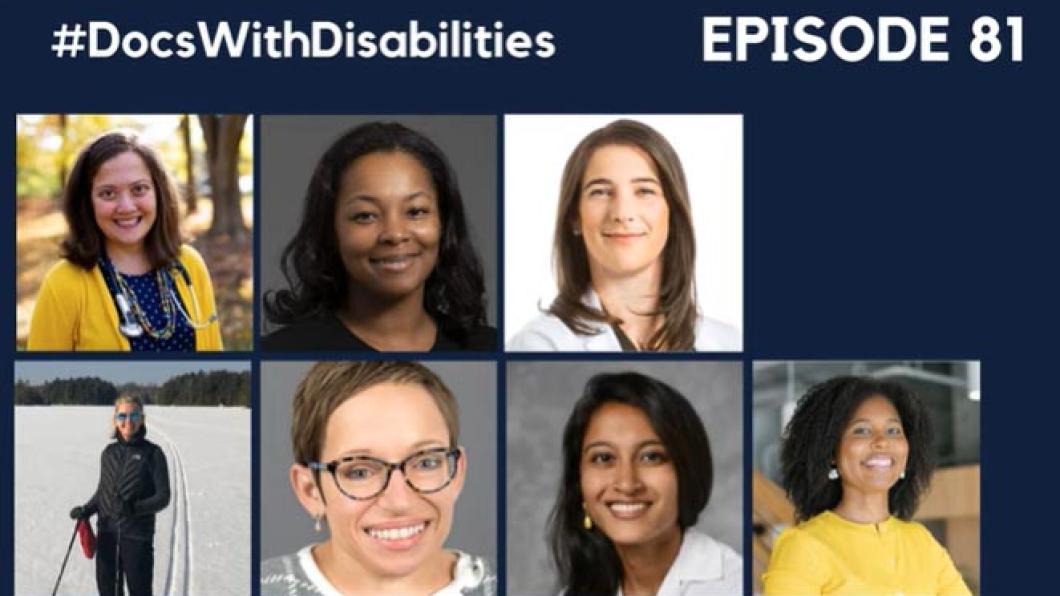
Disabled women talk about what they bring to medicine
By Louise Kinross
A 2021 study in Health Affairs revealed a shocking degree of disability bias in medicine. Over 80 per cent of 712 American doctors didn't think it was possible to live well with a significant disability, and 60 per cent didn't feel equipped to provide the same care to a disabled patient that they give other patients.
Last year, 80 per cent of 44 fourth-year medical students in this Disability and Health Journal study rated their education on disability as inadequate. They also reported less comfort with taking a patient history, doing a physical exam, and making a differential diagnosis when working with people with disabilities.
So it was a breath of fresh air to listen to this panel of seven disabled women doctors last month—including Dr. Paige Church, a neonatologist and developmental pediatrician who used to work in Holland Bloorview's spina bifida clinic, and is now at Boston Children's Hospital.
These women, featured on the Doctors With Disabilities podcast, are pioneers.
They talked about when they did, and didn't, disclose their disabilities; how to find a supportive work environment; inappropriate comments from professors and peers; being denied an accommodation; how they rely on each other; and how their personal experience with disability and using the health system benefits patients.
One story that stuck out happened to Dr. Jennifer Arnold, who is a neonatologist who works in simulation training at Boston Children's Hospital. She has skeletal dysplasia and mobility issues. Earlier in her career she was getting credentialed in another hospital and was assigned to work in the service delivering babies.
She requested $30 step stools in each delivery room to accommodate her short stature. The medical director e-mailed to let her know that "the institution is not willing or able to purchase and or maintain step stools in the delivery room, so we won't be able to have you do delivery room service... I kind of thought is that something that's legally even allowed in this day and age? I've clearly already been practising and done delivery room service and had step stools available...'
It took three months, but she eventually got the hospital to purchase the step stools. She learned a lot in the process, but chose to leave the organization. "...My leadership didn't even advocate for me on behalf of the hospital," she said.
The doctors on the panel spoke about the value of their experience with disability and as someone who relies on health care. "I didn't know anyone else who was a little person who was a physician when I was applying," Dr. Arnold said. "And I really feared that maybe I wouldn't be good enough or I wouldn't contribute enough."
But over the years she learned "there is so much we offer our patients from our perspective, from our lived experiences as individuals with disabilities... I've seen connections made with patients that others couldn't [have made], and opportunities to have an impact...maybe differently or even better than others who may not have gone through similar life experiences."
Dr. Church said the doctors' experiences receiving health care "make our conversations with our patients richer, and more real..."
This is a must listen! Check out the podcast, or read the transcript.
Like this story? Sign up for our monthly BLOOM e-letter. Visit us at BLOOM Facebook, follow @LouiseKinross on Twitter, or watch our A Family Like Mine video series.